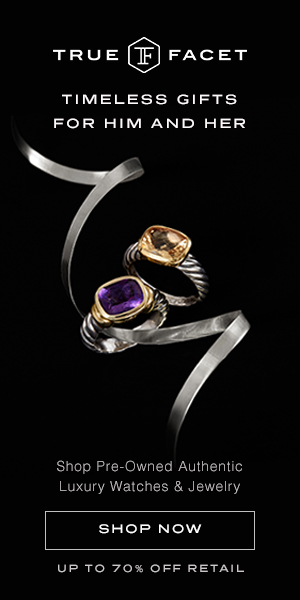What Jewelry Can You Wear in the Shower
Even though the best advice for maintaining your jewelry is to avoid wearing it while you’re in the shower, some items are either too difficult to take off or worn daily. In these cases, taking them off could seem like a hassle, so you might decide to leave them on.
But before you hop in the shower without taking off your favorite necklace, you must consider the material first. Some jewelry should be kept from water at all costs, while others are more resistant.
So which pieces are safe in the shower, and which ones aren’t? We’ll tell you everything you must know about showering with jewelry.
Jewelry You Can Wear in the Shower

Mistaking our jewelry’s metals before exposing them to water is a common faux pas. For this reason, you should look into your jewelry’s metal content. Remember that even though you can technically shower with these materials, we don’t encourage it.
Solid Gold Jewelry
This precious metal is one of the few that won’t tarnish or rust over time. Since it’s non-reactive, it will resist corrosion for a long time and can be worn in the shower without any fear of tarnishing. Whether it’s regular gold, white gold, or rose gold, it’s safe in the shower. However, it loses its shine over time due to soap scum and shampoo residue.
Plastic
This synthetic material is waterproof and very resilient. Plastic jewelry won’t rust or react in any way to water, so it’s ideal for a shower. The only downside is that it can discolor over time due to the chemicals, chlorine, and other elements present in water.
Silicone
Silicone is a type of plastic, but it has more elasticity. It’s used for rings, bracelets, and other items that need to fit perfectly on the body. The material is also water resistant, so it won’t corrode or react to water in any way.
Glass
Some jewelry pieces are made of glass, such as necklaces and earrings. These items can be worn in the shower without any fear of corrosion or tarnishing. But keep in mind that glass can crack or break if exposed to sudden changes in temperature, so you should always be careful with it.
Platinum
Similar to gold, this is a precious metal that won’t tarnish or react to water. Platinum jewelry is so resilient that it can even withstand the most corrosive elements. However, be aware that it can discolor over time due to the chemicals present in shampoo and soap.
Titanium
Titanium is a versatile engineering material used for jewelry, medicine, and other applications. It’s not only durable but also hypoallergenic and resistant to corrosion, so it can be worn in the shower without any worry.
Stainless Steel Jewelry
This alloy is usually composed of a combination of iron, carbon, and chromium. It’s resistant to corrosion and rust, so it can be worn in the shower without any fear of tarnishing or reacting. The only downside is that it can discolor over time due to soap residue, chlorine, and other elements present in the water.
Aluminum
Though it’s not precious, aluminum is a light metal that won’t corrode or react to water. It’s often used for jewelry pieces such as necklaces, bracelets, and earrings that can be worn in the shower without any fear of rusting.
Jewelry You Can’t Wear in the Shower

Even though some jewelry can withstand water, there are a few pieces that you must take off before getting in the shower.
Sterling Silver Jewelry
Sterling silver is a precious metal composed of 92.5% silver and 7.5% other metals, usually copper or nickel. It won’t corrode in water, but it can tarnish over time due to the reaction between the metals present in its alloy.
Gold Plated
Gold-plated jewelry is usually made of base metal, such as brass or copper, with a thin layer of gold on top. This type of jewelry is not resistant to corrosion and can tarnish quickly in water, so it’s best to take it off before showering.
Pearls
Pearls are delicate gems that should never be exposed to water. The chemicals present in shampoo, soap, and water can damage their luster and even cause them to crack or discolor. So it’s best to take off any pearl jewelry before showering.
Wood
Wood can be beautiful, but it’s not resilient with repeated exposure to water. It can swell, discolor, and even crack if submerged in water for too long. Since wood is porous, it can also absorb bacteria and other elements, so it’s best to take off any wooden jewelry before getting in the shower.
Diamonds, Gemstones, and Rhinestones
When the jewelry has stones, it’s important to be extra careful with it. Diamonds, gemstones, and rhinestones can fall out if the jewelry is submerged in water for too long. So take extra care when wearing diamond rings.
The Takeaway
If you want to protect your jewelry and keep it looking as good as new, make sure to check the material before wearing it in the shower. TrueFacet offers a variety of pre-owned fine jewelry and watches made from different materials that can withstand water. So shop now and enjoy beautiful pieces without any worries!







